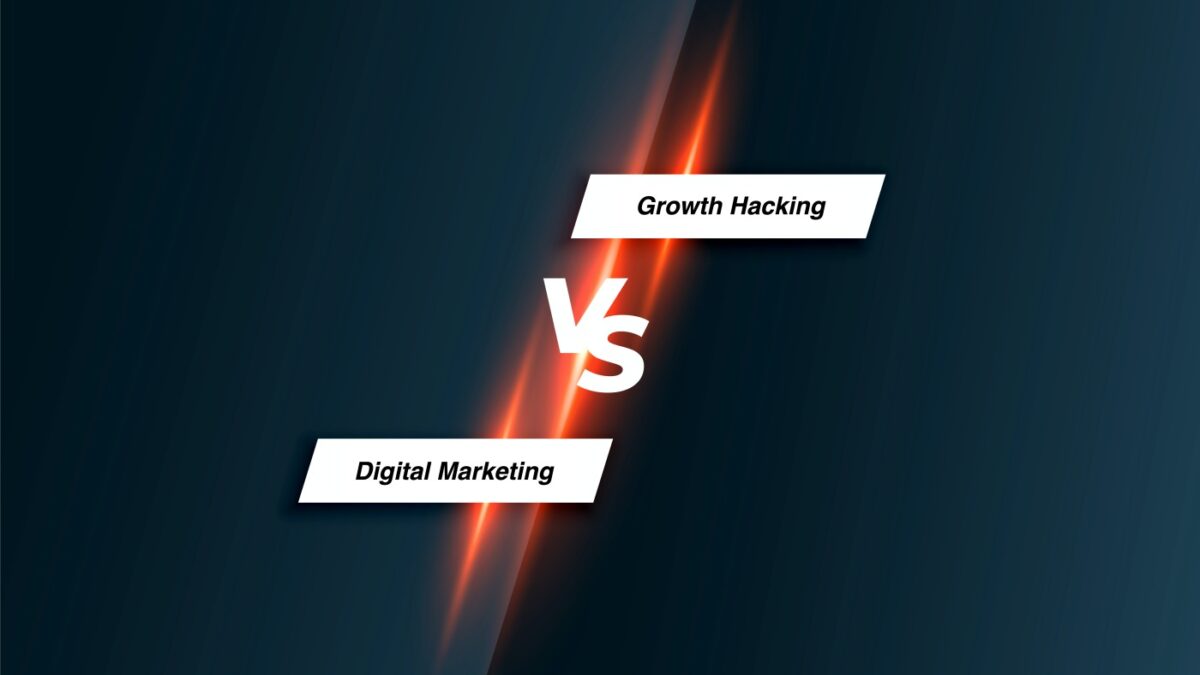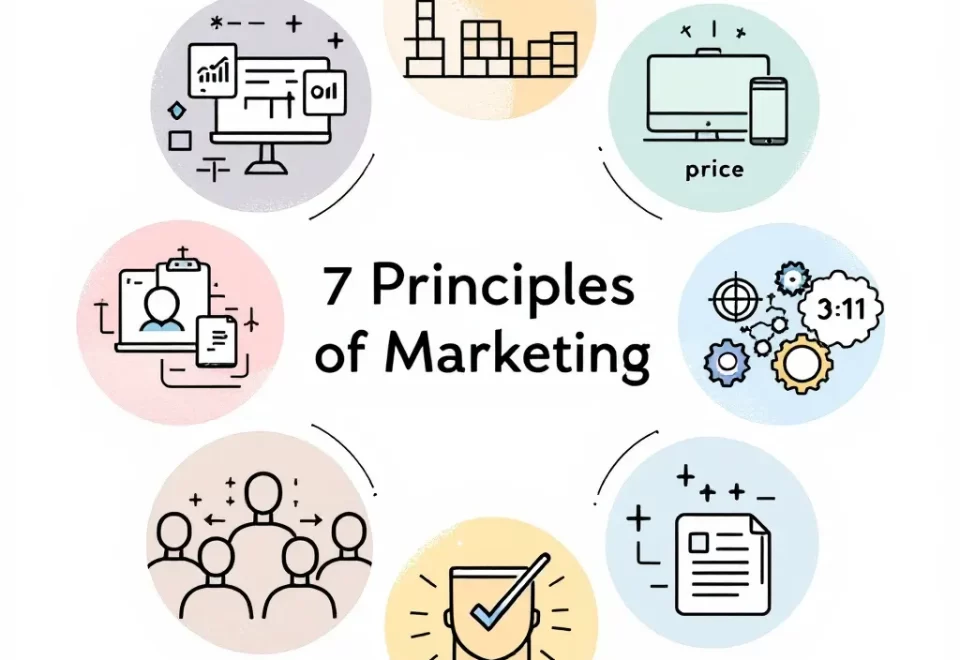Are you struggling to distinguish between growth hacking and digital marketing? You’re not alone. Many business owners find these terms confusing, and it’s easy to see why. Both disciplines focus on driving results through digital channels but have different goals and methods. In this guide, we’ll break down the key distinctions between growth hacking and digital marketing to decide which approach is right for you.
What is Growth Hacking?
Growth hacking is a term that was coined in the early 2010s to describe a new approach to marketing. Unlike traditional marketing, which focuses on branding and awareness, growth hacking is about driving rapid growth by acquiring and retaining customers. Growth hackers use data-driven experimentation to identify and scale effective marketing channels. The business growth hacking process usually starts with a hypothesis, which is tested through experimentation. Growth hacker is constantly looking for new ways to grow their business, and they are not afraid to try out unconventional marketing methods.
Following are some of the elements that are essential for growth hacking:
Data-driven approach
A data-driven approach is the key to growth hacking. This means that all decisions must be based on data and analytics. Without data, it would be difficult to track the progress and success of growth hacking campaigns. When the growth marketing team has access to data, they can easily track what works and what doesn’t. This allows them to quickly pivot and change their campaigns on the fly. If a sales funnel is not working, they can quickly adjust their tactics.
Rapid experimentation
Growth hacking is all about experimentation. A growth marketer must constantly be trying new things and testing different hypotheses. This means that they need to be able to move quickly and efficiently. They need to be able to set up experiments quickly and measure the results accurately. When the growth hacking strategies are working, they should be scaled up quickly to maximize the impact. Suppose a company is trying to increase its website traffic. In that case, they might experiment with different SEO tactics or social media campaigns. Once they find a tactic that works, they can scale it up to get more website visitors.
Creative thinking
Creativity is also important for growth hacking. The team must develop new and innovative ways to reach its target market. They need to think outside the box and be willing to take risks. They always need to be on the lookout for new opportunities. Suppose a company wants to increase its customer base. In that case, they might try a creative marketing campaign or offer a new and unique product.
Cross-functional team
A growth hacking team must be cross functional and should include members from different departments. It is important to have marketing, engineering, and product development representatives. This way, everyone can contribute their skills and knowledge to the growth hacking process. Furthermore, having a cross-functional team ensures everyone is on the same page and working towards the same goal.
Focus on virality
A growth hacking team should also focus on virality. It’s important to note that viral growth doesn’t happen overnight though. This is a process rather than a set of tactics. This means they need to develop ways to make their products and services more viral. They need to create shareable content, and that will generate word-of-mouth marketing. One way to do this is to offer incentives for customers to refer their friends. Another way is to make it easy for customers to share your content on social media. Growth marketers can quickly increase their customer base without spending much money on advertising when they focus on virality.
Focus on acquisition and retention
Finally, a growth hacking team should focus on acquisition and retention. This means that they need to not only acquire new customers but also keep them coming back. To do this, they must offer a great product or service and provide excellent customer service. They also need to create a brand that customers can trust. Customers who are happy with your product or service will likely recommend it to their friends and family. Furthermore, they are more likely to come back and purchase from you in the future.
Do you need help implementing growth hacking or digital marketing?
Contact Growth Hackers
What is Digital Marketing?
Digital marketing is a type of marketing that uses digital technologies to promote and sell products or services. It can reach a wide range of potential customers through various channels, including email, social media, search engines, and websites. Digital marketing is an important part of any business’s overall marketing strategy.
Following are some of the elements of digital marketing:
Search engine optimization (SEO)
SEO is the process of optimizing a website for Google’s search algorithm. SEO’s goal is to improve a website’s visibility in Google’s search results. This can be done by improving the website’s content, structure, and design. Additionally, SEO can also be used to improve the website’s authority and trustworthiness. Different digital marketing strategies can improve a website’s SEO, including link building, content marketing, and social media marketing.
Content marketing
Content marketing is creating and distributing valuable, relevant, consistent content to attract and retain a clearly defined audience. Content marketing aims to drive profitable customer action by building trust and credibility with the audience. Content marketing can be an effective way to improve SEO and generate leads and sales. The digital marketers at Moz suggest that businesses should focus on creating content that is “useful, informative, and interesting.”
Social media marketing
Social media marketing involves using social media platforms to promote and sell products or services. Social media platforms can create and share content, generate leads, and build relationships with potential and current customers. Additionally, social media can be used to improve SEO and drive traffic to a website. If a digital marketer wants to use social media to their full potential, they need to create shareable content and optimize their social media profiles. When digital marketing focuses on social media, it is also important to consider paid social media advertising, because this can be an effective way to reach a wider audience.
Email marketing
When done correctly, email marketing can be a very effective way to reach and engage potential and current customers. Email marketing can build relationships, generate leads, and drive sales. The key to email marketing is to create valuable, relevant, and engaging content that will interest the recipients. Additionally, businesses should segment their email list so that they are only sending emails to those interested in what they offer.
Pay-per-click (PPC) advertising
PPC advertising is online advertising in which businesses pay a fee for each click on their ad. PPC ads can be used to generate leads and drive traffic to a website. PPC advertising is an effective way to reach a wide range of potential customers, and it can be customized to target specific demographics. Suppose a marketer wants to target men aged 18-34 who live in the United States and are interested in sports. The advertiser can create a PPC ad that targets this specific audience.
Affiliate marketing
Unlike other forms of digital marketing, affiliate marketing involves promoting products or services not owned by the business. Instead, businesses partner with affiliates who promote their products or services. When a customer clicks on an affiliate’s link and makes a purchase, the affiliate earns a commission. Affiliate marketing is an effective way to reach new customers, and it can be used to generate leads and drive sales. Different digital marketing tactics can promote affiliate products, including content marketing, social media marketing, and email marketing.
Display advertising
Display advertising is online advertising that uses banner ads, text ads, and rich media to attract web users. It can be used to promote a product, service, or brand and is often used by businesses to generate leads or sales. Display advertising is one of the most popular forms of online advertising and is also the most effective. When used correctly, display advertising can be an extremely powerful marketing tool.
There are a few things to keep in mind when creating a display advertising campaign:
- Target your audience. Make sure you know who you want to reach with your ads.
- Create compelling ads. Your ads should be eye-catching and capture your target audience’s attention.
- Use effective keywords. Keywords are essential for getting your ads seen by the right people. Choose keywords that are relevant to your business and products/services.
- Monitor your results. Keep track of your click-through rates and other metrics to see how effective your campaign is. Make changes as needed to improve your results.
Fuel your business growth with growth hacking and digital marketing strategies today!
Influencer marketing
Influencer marketing is a type of marketing that focuses on using key opinion leaders to promote a product or service. These leaders can be anyone with a large social media following, including celebrities, bloggers, and Instagrammers. Influencer marketing aims to reach a larger audience by getting influencers to talk about your product or service. This can be done through sponsored posts, giveaways, or product reviews.
To succeed with influencer marketing, choosing the right influencers is important. Look for influencers with a large following relevant to your target market. Additionally, make sure the influencer is someone credible and trustworthy.
Mobile marketing
Mobile marketing is a type of marketing that focuses on reaching consumers through their mobile devices. This can be done in various ways, such as through text messaging, mobile apps, and responsive websites. Mobile marketing is becoming increasingly important as more and more people use their phones and other mobile devices to access the internet.
Digital marketing is a complex and ever-changing field. However, by understanding the basics of digital marketing, businesses can create an effective digital marketing strategy to help them reach their target audience and achieve their business goals.
The Key Differences Between Growth Hacking and Digital Marketing
Now that we’ve gone over the basics of each, let’s take a look at some of the key differences between growth hacking and digital marketing:
- Growth hacking is focused on growth. The main goal of growth hacking is to grow a business quickly and efficiently. This is often done through experimentation and data-driven decision making.
- Digital marketing is focused on marketing. The main goal of digital marketing is to promote a product or service through online channels. This can be done through various means, such as SEO, SEM, social media, and email marketing.
- Startups often use growth hacking. Startups often use growth hacking techniques to quickly grow their user base and business.
- Established businesses often use digital marketing. Established businesses typically have larger budgets and more resources, which they can use to invest in digital marketing campaigns.
- Growth hacking is iterative. Growth hackers are constantly testing new ideas and tweaking their approach based on what works and doesn’t.
- Digital marketing is strategic. Digital marketers typically plan out their campaigns and stick to a set strategy.
- Growth hacking is data-driven. Growth hackers rely on data to decide where to focus their efforts.
- Digital marketing is creative. Digital marketers need to be creative to develop effective campaigns that will capture the attention of their target audience.
- Growth hacking is fast paced. Growth hacking is a fast-paced process that requires quick thinking and constant experimentation. Digital marketing is slower paced. Digital marketing campaigns take longer to plan and execute.
Looking at today’s business scenario, it would be hard to deny the fact that both growth hacking and digital marketing are essential for any business that wants to succeed. While there are some key differences between the two, they both have their own strengths that businesses can leverage to achieve their goals. So its upto the businesses to decide which one would be the best fit for them.
Final Words on Growth Hacking vs Digital Marketing
There you have it! This is everything you need to know about growth hacking vs digital marketing. While both approaches can be used to grow a business, they are typically used for different purposes. Growth hacking is different from growth marketing, which is different from online marketing. Startups often use growth hacking techniques to quickly grow their user base and business, while established businesses typically use digital marketing to promote their product or service.
So, at last, what is the best option for your business? It depends on your individual business goals. If you’re focused on growth, then growth hacking may be your best option. However, digital marketing may be a better fit if you’re focused on marketing.
Growth Hackers is recognized as one of the best digital marketing agencies helping businesses from all over the world grow. There is no fluff with Growth Hackers. We help entrepreneurs and business owners use growth hacking and digital marketing strategies effectively, generate qualified leads, optimize their conversion rate, gather and analyze data analytics, acquire and retain users and increase sales. By hiring a growth marketing consultant, you will gain the benefits of both growth hacking and digital marketing.
We go further than brand awareness and exposure. We make sure that the strategies we implement move the needle so your business grow, strive and succeed. If you too want your business to reach new heights, contact Growth Hackers today so we can discuss about your brand and create a custom growth plan for you. You’re just one click away to skyrocket your business.










